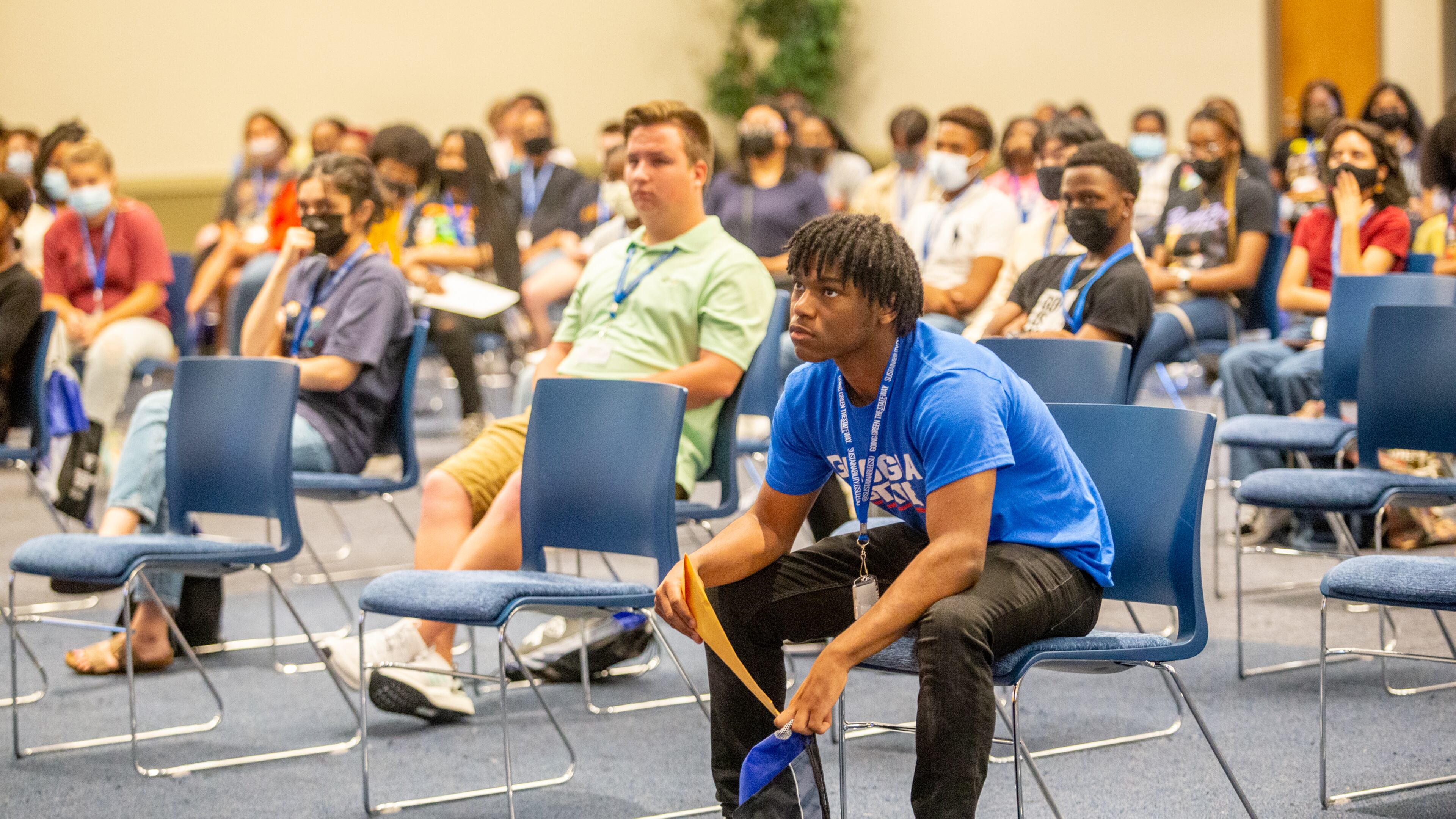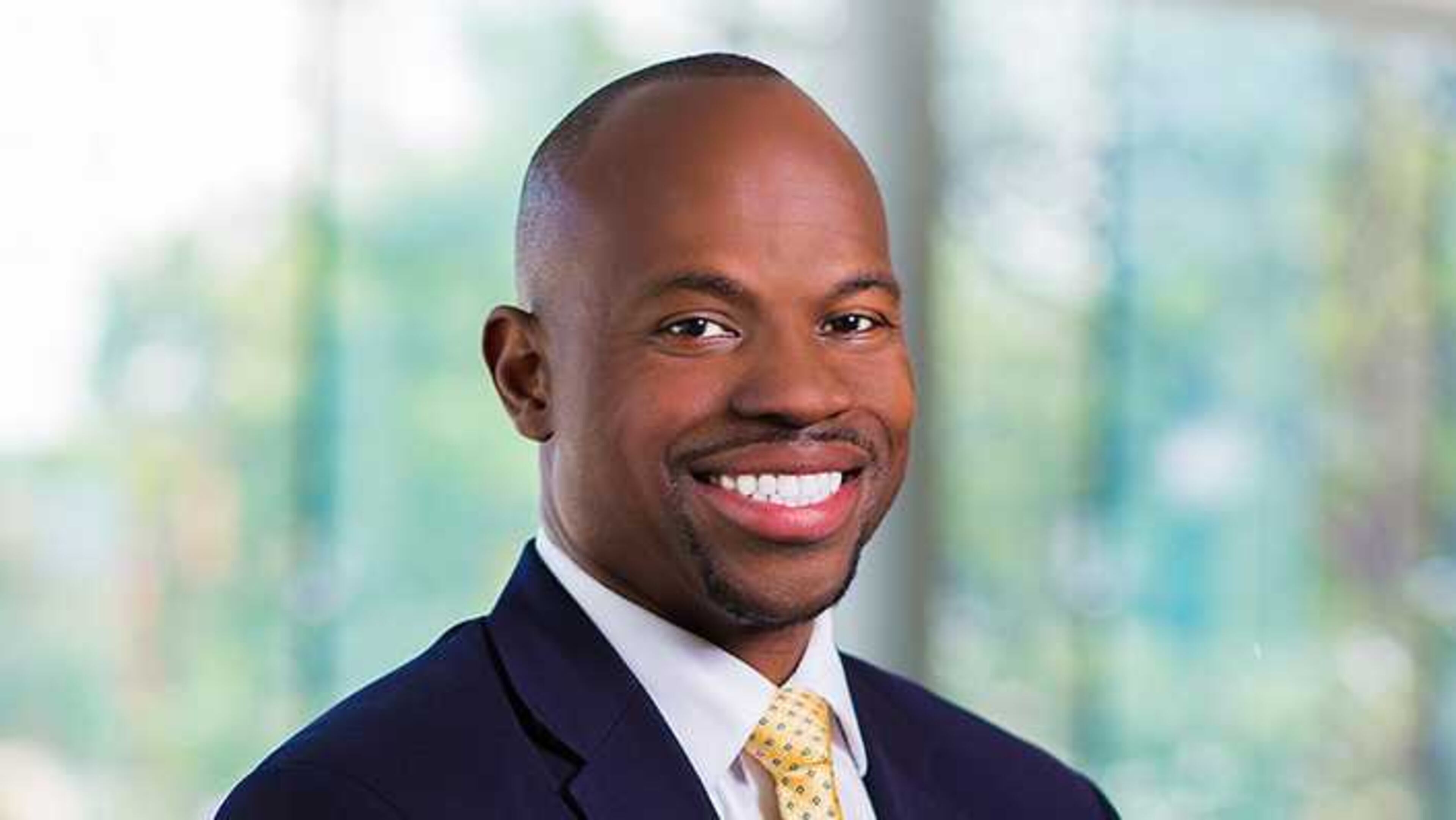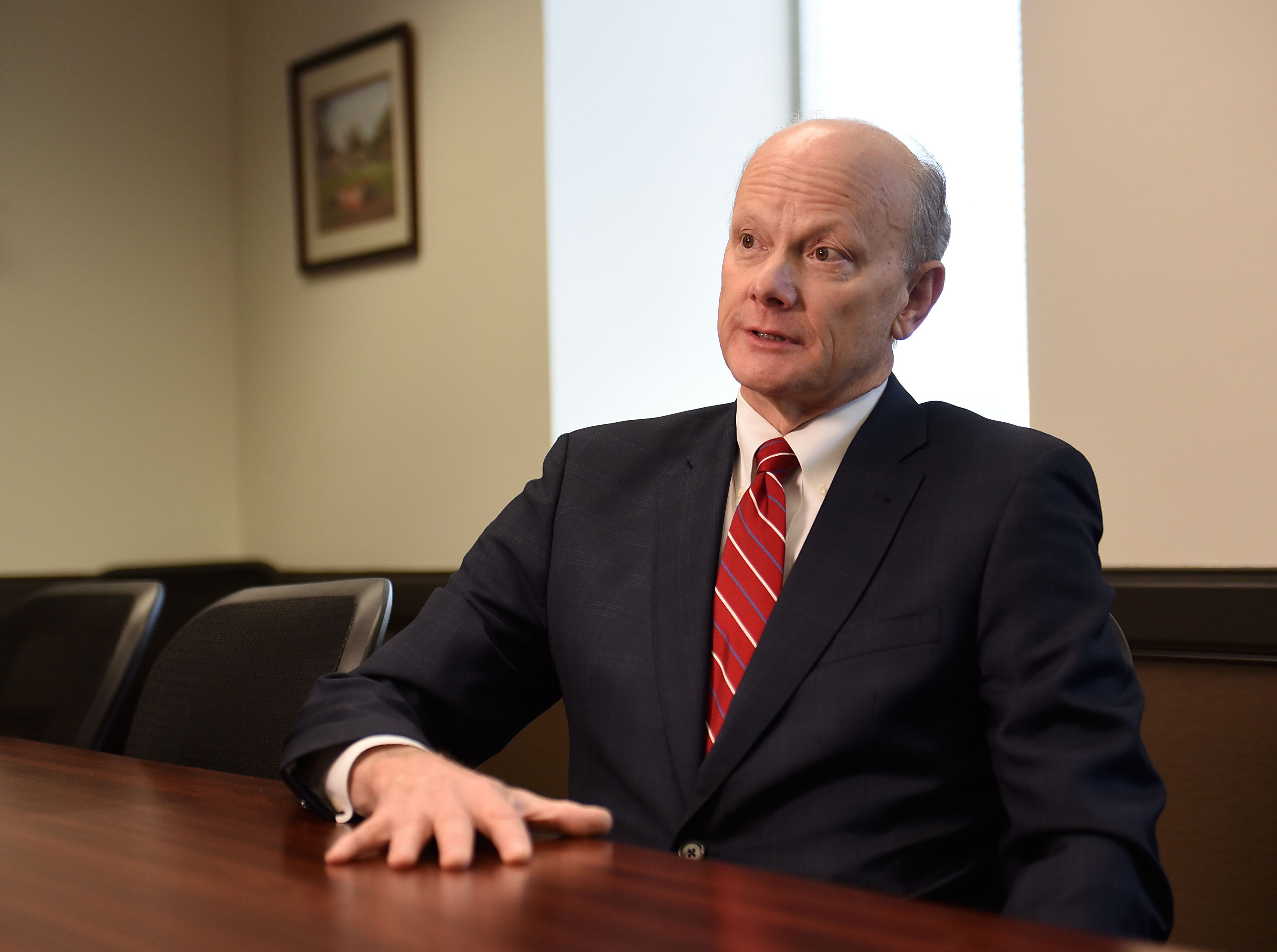Georgia’s university system prepares for critical period

Georgia State University President Mark Becker walked outside his office Wednesday afternoon to greet a visitor while the man who will soon step into his job, M. Brian Blake, was in a conference room a few feet away beginning the transition process.
The two men talked briefly in the hallway, where Becker offered his additional help before Blake departed.
Here, and at several public universities statewide, the baton is being passed to a new group of leaders. The University System of Georgia has hired three presidents since May and is conducting searches for presidents at three other schools. The system is in the midst of an unexpected six month-long process of hiring a new chancellor, marked by the fractious campaign to put former Gov. Sonny Perdue in the job. The state’s Board of Regents on Wednesday named one of the system’s top administrators, Teresa MacCartney, acting chancellor for an unspecified period.
In many respects, the University System is at a crossroads. The system is continuing to grapple with the impact of COVID-19 on its budget and operations. In a nod to the pandemic’s ongoing financial turmoil on many students and families, tuition this coming school year will remain the same for the second straight year. Meanwhile, the system’s workforce declined last fall by nearly 1,600 employees through retirements and layoffs.

Enrollment has increased and is more racially diverse than any period in its history. Blake will be Georgia State’s first Black president. But alongside the enrollment gains, a larger percentage of its students come from lower-income households and are having trouble paying for their education.
Georgia is facing many of the same challenges administrators nationwide are dealing with in higher education. System leaders are walking the tightrope of balancing the demands for social justice reforms against complaints by conservatives that campuses have become centers for liberal ideology. While the system’s enrollment has steadily increased to record levels recently, Georgia’s enrollment is projected to decline in about five years.
The coronavirus pandemic has made administrators and state lawmakers take an expansive look at how public higher education is working in Georgia, said state Rep. Jasmine Clark, D-Lilburn, a member of the House of Representatives Higher Education committee.
“I see it as an opportunity to continue to move the University System in a good direction and a better direction,” said Clark, who is also an Emory University professor. Emory is not part of the University System.
In his 4½ years as chancellor, Steve Wrigley frequently focused on student outcomes. Wrigley’s team has developed initiatives for students to take courses in their first year aimed at helping them complete their degrees on time, and with less student loan debt.
Last year, nearly 71,000 degrees and awards were conferred, a 13% increase from five years ago. Six-year bachelor’s degree graduation rates — the industry standard — increased by nearly 5%, to about 62%, during his tenure. Georgia Tech and the University of Georgia have graduation rates around 90% and are consistently ranked among the nation’s top public universities.
But only six of the system’s 26 schools, mainly its largest universities, have graduation rates at or above the system average. Degrees earned and graduation rates lag at its nine state colleges, most of which are located outside metro Atlanta. Their enrollment dropped by 7% last fall.
Wrigley, who announced in January his plans to retire on July 1, said in a recent interview the enrollment decrease at the state colleges is reflective of the national decline at smaller colleges. He believes more must be done to help adult learners seeking degrees or credentials and younger students — particularly in rural Georgia — having trouble paying for college.
“The changes in demographics and the declining number of high school graduates because of declining birth rates, which is a worldwide phenomenon, that is a significant change for higher ed in many ways. ... I think we have to look at it as an opportunity for us,” he said.

Under the Gold Dome
Gov. Brian Kemp has talked frequently about the importance of higher education in developing future workers and entrepreneurs. An enrollment decline could hamper the state’s efforts to find workers in high-paying industries.
The University System has a $10 billion total fiscal year budget, which mostly comes from state and federal funds. Some in state government call the system Georgia’s fourth branch of government.
Some state lawmakers, primarily Republicans, have been frustrated by the influence of the Board of Regents, a 19-member body appointed solely by the governor that serves staggered seven-year terms and governs the University System. One senator, Brandon Beach, R-Alpharetta, crafted a resolution earlier this year to allow the Legislature to choose 14 of the 19 Regents members. It didn’t pass.
The AJC learned in March of an effort by some Regents members to select Perdue, Georgia’s first Republican governor since Reconstruction, as chancellor. Board members have not publicly discussed the search since it’s considered a personnel matter. Critics blasted the idea of a Chancellor Perdue, noting he has no experience in higher education administration. Others noted the job requires political skill, and more politicians are serving in such posts.

Perdue said in a brief AJC interview a few weeks ago he would serve if asked and his goals would include pushing conservative values. Some students created a social media campaign against Perdue and held rallies against his selection. Prominent conservative voices, such as Erick Erickson, on Thursday said a media smear campaign is underway against Perdue because he used to work in the Trump administration. Perdue served as agriculture secretary all four years of former President Donald Trump’s tenure.
Affordability
Wrigley has constantly noted the Georgia system has one of the lowest average tuition rates in the South. Its HOPE and Zell Miller scholarships, which cover much of tuition costs based on academic performance, have been duplicated in other states. Wrigley was part of the team that created the HOPE scholarship a little more than a quarter-century ago.
Georgia, though, is one of handful of states without a robust program to provide financial support to students based on need. That must change, Clark said.
She is hopeful Georgia will pass legislation that will more directly address needs-based aid, which she believes is one of several ways the state could fight against the headwinds of the projected enrollment decline.
“The only way to get more enrollment is to increase access,” Clark said.
The view on campus
Wrigley believes the system must be more flexible in recruiting students. He spoke of how Atlanta Metropolitan State College offers some courses on evenings or weekends.
Becker, like Wrigley, is concerned about the national enrollment trends. He noted there’s little appetite among Democratic and Republican lawmakers for tuition increases as student loan debt has become more of a national issue.
“Do more with less. That is the challenge,” he said.

The pandemic and social justice protests have forced universities like his to do more to increase racial and gender diversity among students and faculty, which he believes is “going to stick” in the coming years. Becker also believes universities must continue to find ways to offer online courses, particularly for students outside the Atlanta region.
Douglas Young, who retired late last year after 33 years as a political science professor in Georgia, is not as bullish on online learning. It required less effort by students and faculty, he said.
“We missed the live give-and-take, the excitement, the joy and humor of the classroom,” said Young, who spent the last two decades at the University of North Georgia.
A greater concern to Young, a self-described Christian and conservative, is an increasing number of faculty members are intolerant of differing political and social viewpoints. In recent years, Republican state lawmakers have introduced bills aimed at addressing such complaints. Some of the legislation has mirrored position papers by conservative think tanks. A Republican state representative asked the University System earlier this year for information to address concerns he’s heard from constituents that some courses may be teaching content that maligns white people.
In addition to curriculum concerns, system officials are facing scrutiny over their campus operations.
Avery James, 24, a Georgia College & State University graduate student, said she feels optimistic, yet apprehensive, about the school’s future. Her professors are kind and encouraging. James, though, said there’s been a lack of communication about the school’s presidential search process.
“It’s very disconcerting,” said James, co-chair of the school’s United Campus Workers of Georgia chapter.
The organization has become a vocal critic of several system decisions made during the pandemic it believes has endangered students and employees. James and others want the schools to require vaccinations. The system, guided by state public health officials, has thus far strongly recommended — but not ordered — vaccinations.

Wrigley said he considered retiring before the pandemic but stayed to address the many challenges it presented. His post-retirement plans include spending time with his new grandson and having no specific schedule.
Becker said he doesn’t have specific plans after he leaves Georgia State in early August. He believes the university is in a better place, but there will be plenty of work for Blake to do.
“The line I use around people is Georgia State isn’t halfway to where it can be as an institution,” Becker said.
Go to www.ajc.com to read and watch a video of Chancellor Steve Wrigley discuss in his own words his retirement decision.
Help Wanted
Here’s a breakdown of the searches for several key positions in the University System of Georgia:
Chancellor
The state’s Board of Regents on June 23 named Teresa MacCartney acting chancellor, effective July 1.
Georgia State University President
The Regents on June 17 selected M. Brian Blake as the next president, effective Aug. 9.
Clayton State University President
The Regents on June 10 hired T. Ramon Stuart as president, effective July 1.
Kennesaw State University President
Chief Academic Officer Kathy Schwaig was named interim president on April 29.
Georgia College & State University President
A search committee was named on April 1.
East Georgia State College President
A search committee was named on June 9. Dawn H. Cartee has been appointed interim president.
Savannah State University President
Kimberly Ballard-Washington was named president on May 13.
University System Enrollment
Year - Students
2020 - 341,485
2019 - 333,507
2018 - 328,712
2017 - 325,203
2016 - 321,549
Source: University System of Georgia



